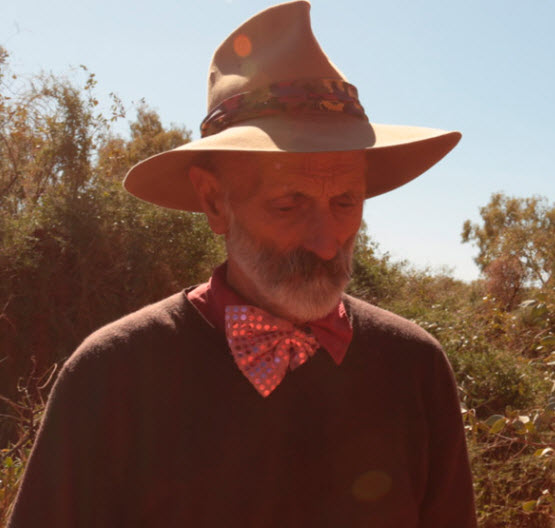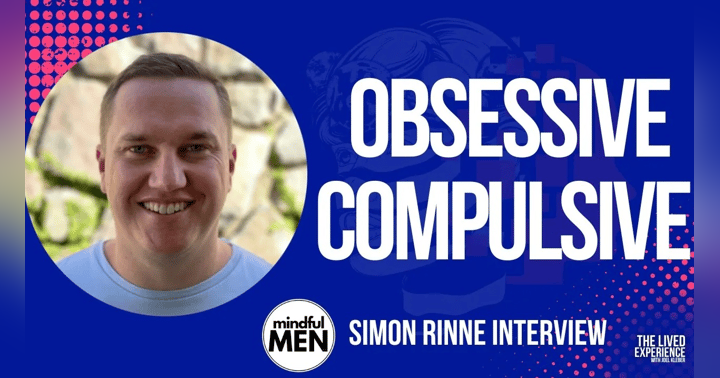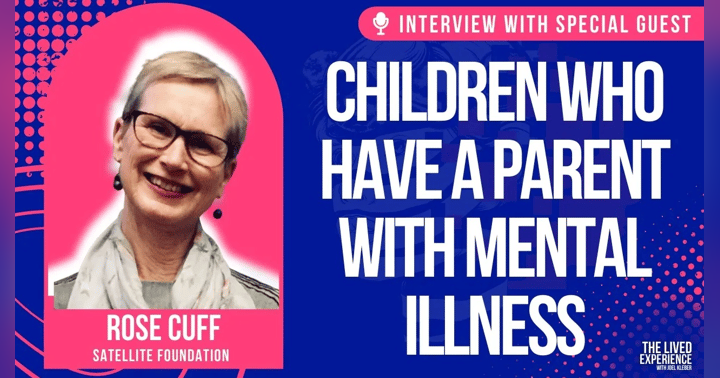Interview with Happy Sad Man award winning filmmaker, Genevieve Bailey

Genevieve Bailey was named one of Australia’s ‘Top Film and TV of directors of 2012′ in the Encore and Mumbrella Annual.
Melbourne Magazine named her one of “Melbourne’s most influential, inspirational, provocative, and creative people.”
Genevieve is as passionate about filmmaking as she is about reaching audiences through innovative distribution, active engagement, and meaningful outreach.
Her other recent directing or producing credits include THE FUNNY ONES (ABC TV, 2017) and JUDGING THE GATWICK (Premiered St Kilda Film Festival 2019)
JOEL: How did you first fall in love with becoming a filmmaker?
GENEVIEVE: I made a film called I'm 11, which was my first feature-length documentary before “Happy Sad Man”.
And it's about the world today through the eyes of a living your kids.
So, I traveled — I've never been outside of Australia. But to make I am 11 I traveled to 15 countries around the world over several years. It was an amazing experience, the films in 12 languages and the funnest thing I've ever done, but prior to that, I made a lot of short films and music videos.
But going back to my childhood, when I was about eight back in my day, we didn't have video cameras or iPhones at home.
So, I would borrow a camera from the primary school hours app just for the weekend and make the most of it. I'd have many hours filming my dog or setting up little special effects music videos with my brother and sister, or interviewing pot plants.
So, whatever I was doing, I was really making the most of this opportunity to capture things on camera.
So, my love of storytelling was very evident in my childhood and then just continue didn't add up, pull it in.
I love my job so much.
And I'm very privileged to be able to be a conduit for other people's stories.
How are you able to make a career out of it?
It's not always easy. And it's not the industry where there's a shortage of workers. So, there's not a high demand.
And that way that you can just apply for a job and as director directing films, so you just must, in my experience, have a huge amount of self-belief.
Like, there's so many hurdles that you must jump over. And for me, I just always dreamed that these ideas I have, it's worth doing as possible, and I can make it happen, even if it's not always fun, financially viable.
It's definitely not a career I got into, to get rich, maybe there's this idea sometimes that in the film, industry or TV, and there's certain areas of film and TV that there is a lot more money, but doing independent documentaries is really for the love of storytelling and creating impact.
And for me, it's encouraging and inspiring more compassion and people or kind of curiosity as well. I guess it's something that I just continued to hone my skills from short films into making feature-length work over several years, and I love it very much.
What advice would you have for someone who wants to be a filmmaker?
I would say for people who are feeling like “I don't have the money to make something big”.
Start small, and create something this weekend on a phone, because your skills in terms of producing and directing or shooting or editing, they can all be developed without needing a huge amount of equipment.
And I'd also say that a lot of people maybe think that being a filmmaker is all about directing.
But as you would know, there's lots of different skills, and not everyone wants to direct some of them might want to write or they might want to edit, they might love the idea of bringing a story together in edit suite, or they might want to produce or the record the sound or do the music.
So, I think just kind of broadening what it is to be a filmmaker and realizing there's so many different roles that you might be able to have a passion for beyond just the kind of role of the director.
What are your thoughts about bipolar disorder?
When I met John, and he told me, he lives with bipolar disorder. I'd heard of it before, but I guess I hadn't known someone.
Well, maybe I've met people with bipolar and not knowing but because I was a student at university. And I got to know John, I really learned most of what I know about bipolar through my friendship with John over the years, and seeing his high highs and low lows, seeing how that impacted on him and his relationships with his family and friends.
I mean, it's hard to summarize, but there was quite a lot going on. And for me, I guess I learned that for some people, maybe their ups and downs might be like this. But for John his highest when he was feeling manic, they would last for sometimes a couple of years. And then he might have gone down.
And so, in that time, where he felt like he was slipping he would say, I knew that was potentially can lead to another maybe two years of depression, very, very significant depression.
So, it wasn't a matter of a week or a week or so at a time, it was like prolonged. And I know that everyone's experience is unique, and some people would not experience bipolar in that way.
But I learned a lot from John. And then in making the film, and meeting Brandt, who also lives with bipolar, I learned a lot about his experience and how he works out when it was a recipe.
And for him, his recipe for wellness is surfing every day, spending time with family, getting enough sleep, exercising, being around good people and taking his medication.
So, he acknowledges as to why that everyone's recipe is different. For some people, not working too much, or making sure they get time in the garden or spending time dancing or reading or sewing or learning language or connecting with family. There are so many different pieces of the puzzle.
But I think what I've learned making me Sad Man and learn about bipolar is that working out what works for you. And kind of sticking with it and communicating that with people around you.
Because I would love to share something that I learned in the process of making Happy Sad Man.
And that was about, sometimes we don't know what to do.
We don't do anything or if we see someone who might be going through a hard time.
We talk we don't want to muck up and say the wrong things. We didn't say anything. And maybe children who are living with a parent with a mental illness experience that because maybe their friends can't relate, or they don't know quite how to navigate conversations that don't say anything.
And sometimes that can leave people feeling really isolated if they're not able to have chats with people about their experience.
One thing I did with John, when he was feeling well was, I asked him if you if you start feeling unwell again, John, what can I do what's helpful, and John very clearly said to me, I'm wanting to sleep 23 hours a day, but don't let me and don't mollycoddle me. Don't feed me soup in bed. Get me up, get me doing physical activity.
Get me doing housework, ironing, cleaning, fixing your fence, whatever it is get me doing things. And so that might not suit everyone. But for John, that's a part of his recipe is he's making sure he's active.
That was helpful. Because when John was unwell, I knew ‘Okay, he's going to want to keep sleeping’, but I might take him out for a walk and waiting till he's unwell to ask him what's helpful, it would have been too late then I just don't think he would have had the capacity to describe it in detail at events.
So that's something I learned from the process. And I think we can all take a moment to stop and think ‘okay, when I'm feeling pretty cr*p, what helps me and who can I communicate that with?’
From your perspective, what do you think could be done more to support people with bipolar disorder?
Sounds like a cliche that it takes a village thing, but I really think it does. And I think that, hopefully, if people have a close family that understand and have the capacity, because there's people who can be understanding, but they just might not have the capacity to lean in and support.
And I want to acknowledge that that's completely reasonable in lots of circumstances, too. But if the people in your immediate family or your partner don't have that capacity, like it can be hard, because how do you find it? How do you find that outside of a manifesting system?
Like obviously, there's a professional medical support that you might have or need at certain times, but just finding people that you connect with and for me, I've always liked being friends with people who are from abroad age, demographic, social demographic, and not feeling like the only people who are my family or my blood relatives, but also your chosen family.
I mean, finding people who maybe have a lived experience that like yours, and maybe someone older than you, who's been through experiences that you've been through, doesn't matter what it is in life.
I think that I benefit from that. And so, I think for finding your people. And I'm not saying it's easy to do, but I think it's been.
It's hugely significant in people that have observed who feel that they've got people who understand them and don't judge.
What was Ivan doing in the community that was special or different in regard to helping people?
So, Ivan, he's also in his 70s. John and I both have a lot of energy, they're not going to start what they're doing anytime soon.
And Ivan is a rural outreach worker.
So, he supports people and their mental health needs in regional communities, often farmers and farming families on the land.
He lives out there. And he understands that approaching people in a way that perhaps is not speaking, the language isn't going to work. So Ivan, as you saw in the film, goes out there has a cup of tea talks about the tractor, chassis, about the animals, and then sort of might say, it hasn't been going, I hope you had some financial stress this year, or had been coping after the fire taming, after the floods has the marriage going how the kids and he has a really, really efficient way of speaking to people in a way where they don't feel like they're being patronized.
They're not feel like they're being pushed into going to appointments, but he does prefer them to see GPS or to see counselors or see a marriage counselor or a financial consultant, because he can identify that a lot of people live in the land area isolated and won't have the time or sometimes resources or capacity to reach out for help.
I think every town needs an Ivan. And you're right, the rates of suicide in Australia are very high.
And as we know, women experience just as many mental health challenges as two people who identify as non-binary as men, but statistics show that men are more likely to attempt or at attempt to end their own lives to die from suicide.
So, Ivan has been very touched by that in his life and wants to do a lot to help people to feel less alone and to get practical and pragmatic support.
Is there a lot of that funding for those people in the community, and how does the rural outreach role work?
No. It's even been hard. Even though Ivan is clearly very, very good at it. It's even been hard for him to be able to find enough funding to do it.
And it's like, quite heartbreaking. To know. I mean, think about all overthinking about the weird things, especially when you look on the internet, Instagram, like you think about the weird things people are paid to do or things are paid to promote.
And you think, wow, isn't it amazing to think that there's people who out there not just changing potential, but potentially saving lives? who aren't able to find adequate funding to support and to do that?
It's something I hope changes in the future. But it's been a disappointing part of the journey, realizing how few people there are out there, able to do this work and be paid for it.
What are you working on next, then for what's your next project?
I've just started a brand-new project, which is exciting, with Lifeline Australia. So, they're celebrating the 60th anniversary next year.
And I'm just starting to make a documentary with them. And we'll be looking at exploring and getting insights into their history, but also in present-day classes, support workers that are out the phones and answering calls and responding to people who need a hand, something that I'm really interested in as well.
Huge thanks to Genevieve for her time, and please view all screening times via https://happysadman.org/screenings/
This is a really important film, so please support it in any way possible.












